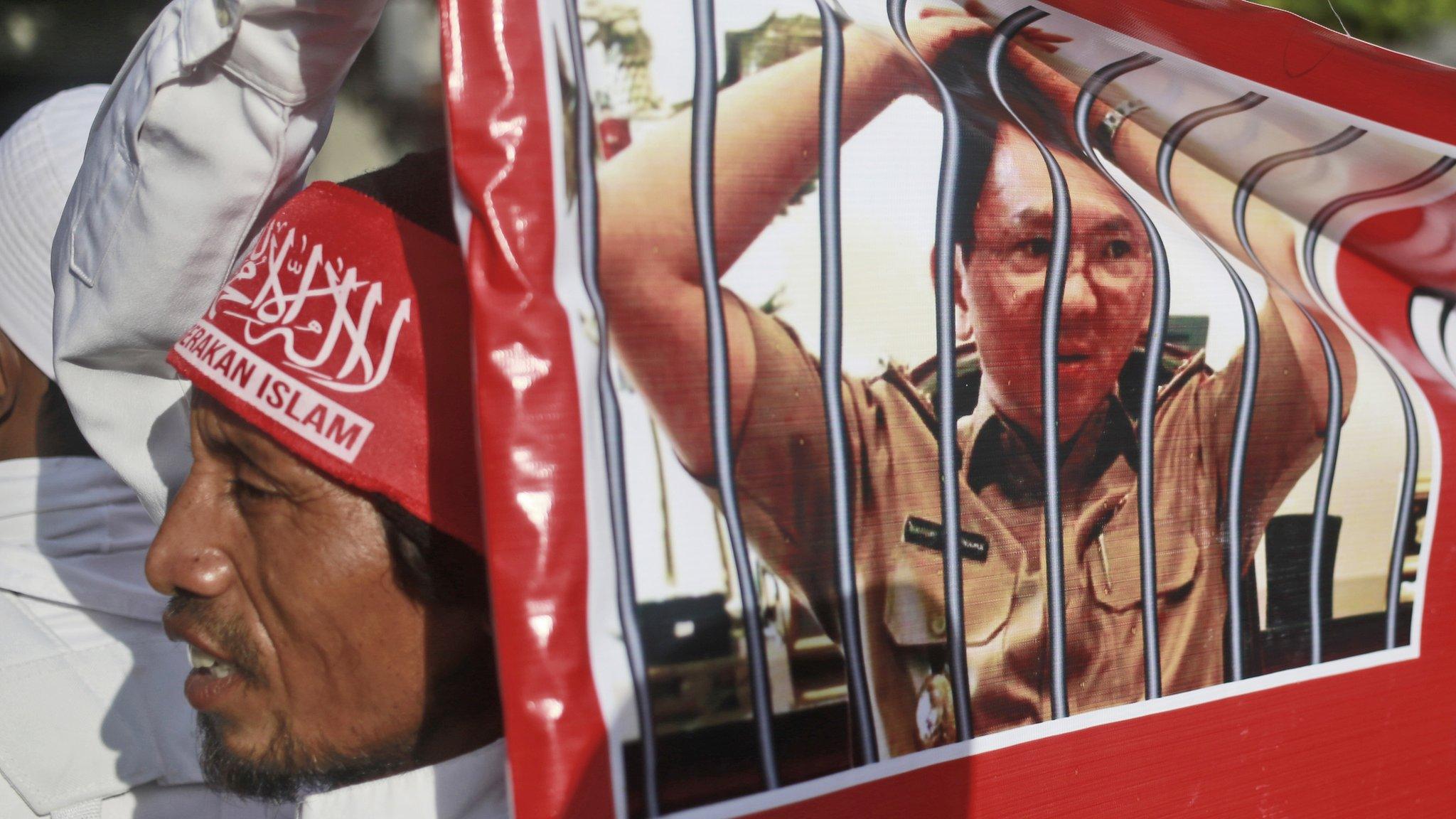Indonesia Islam: Governor's blasphemy conviction divides a nation
- Published
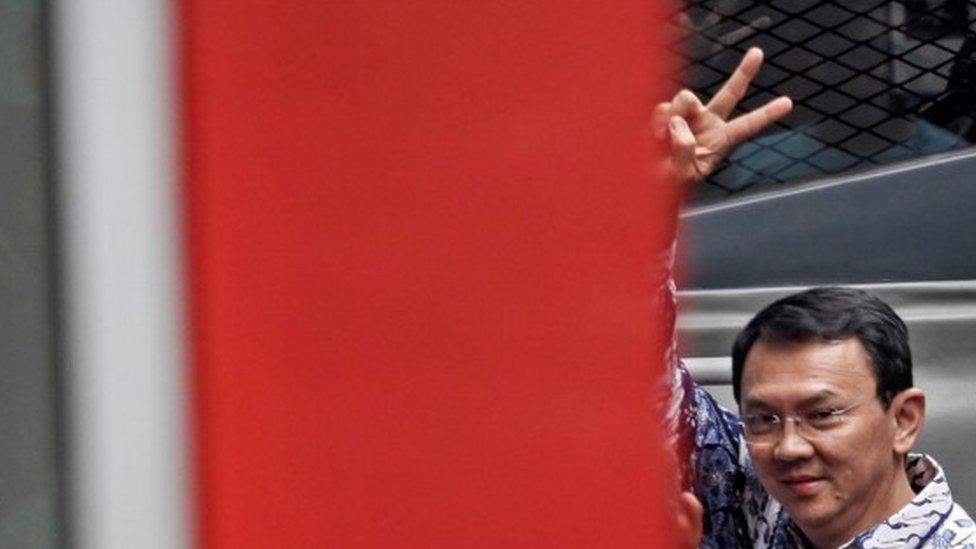
Basuki Tjahaja Purnama was defiant as he arrived at Jakarta's Cipinang prison on Tuesday
An Indonesian court has sentenced Jakarta's first Christian governor to two years in prison for insulting Islam. Basuki Tjahaja Purnama has denied blasphemy and plans to appeal. As Indonesia service editor Rebecca Henschke reports, the verdict is being seen as a setback for religious tolerance in the world's largest Muslim-majority country.
After Basuki Tjahaja Purnama, better known by his nickname Ahok, was found guilty of blasphemy, he was immediately led away to the overcrowded Cipinang prison.
Photos quickly appeared on social media of him being warmly greeted by prison staff. While his supporters rallied into the night in their thousands singing songs and demanding his release, his name starting trending on social media.
"He has become a martyr of free speech," says Bambang Harymurti, senior editor of Tempo magazine, who has been fighting against the blasphemy laws for years.
"An injustice has been done today. I think he was found guilty because of political pressure and mobocracy - the pressure of the mob. This is bad for freedom of speech in Indonesia. I think this is a very sad day for democracy."
Outrage
Mr Purnama was accused of blasphemy for comments he made during a pre-election speech in September 2016. He implied that Islamic leaders were trying to trick voters by using a verse in the Koran to argue that Muslims should not vote for a non-Muslim leader.
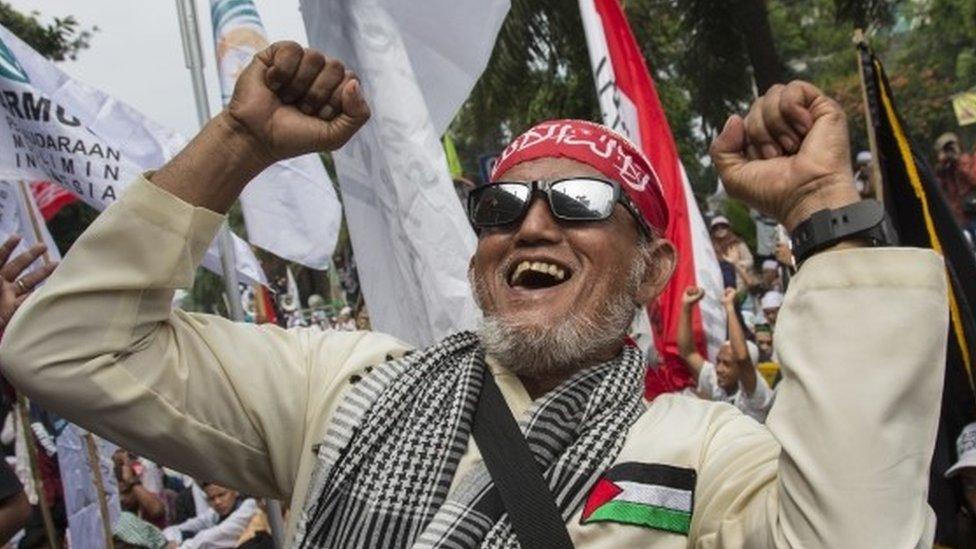
Hardline Muslim groups celebrated the jailing of the governor outside the court
His remarks sparked outrage among religious hardliners. They staged regular large rallies calling for him to face trial.
"As part of a religious society, the defendant should be careful not to use words with negative connotations regarding the symbols of religions," the head judge, Dwiarso Budi Santiarto, said when handing down the verdict.
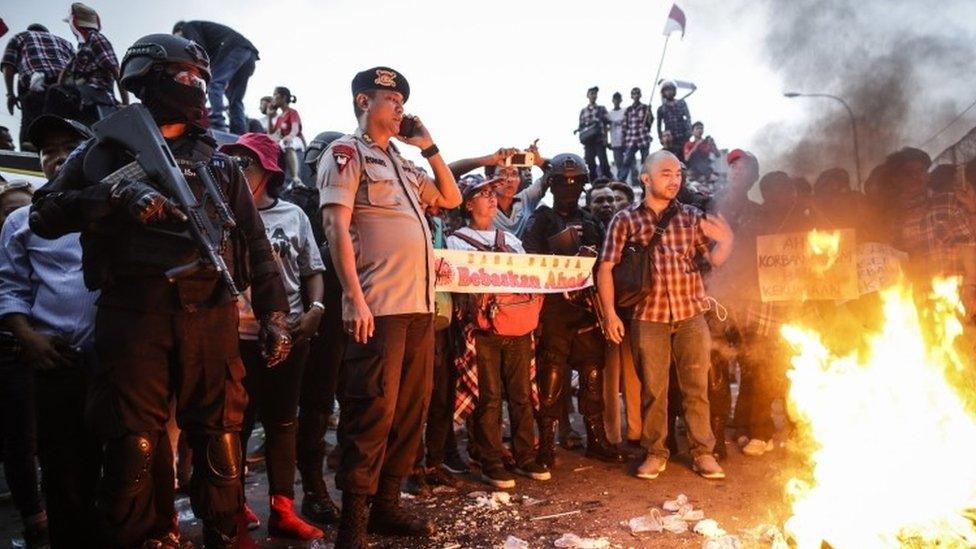
Supporters of Mr Purnama were aggrieved that he had been treated too harshly by the court
Jakarta - the city Mr Purnama led - is a melting pot of the thousands of ethnic groups that make up this vast archipelago.
Despite being a majority Islamic country, Indonesia has a pluralist and multi-faith constitution that respects six official religions. And its national motto "Bhinneka Tunggal Ika" means "Unity in Diversity".
'Clear message'
The country's founding fathers are believed to have agreed to drop the inclusion of Sharia - or Islamic law - in the nation's constitution in 1945, reportedly to accommodate the wishes of religious minorities.
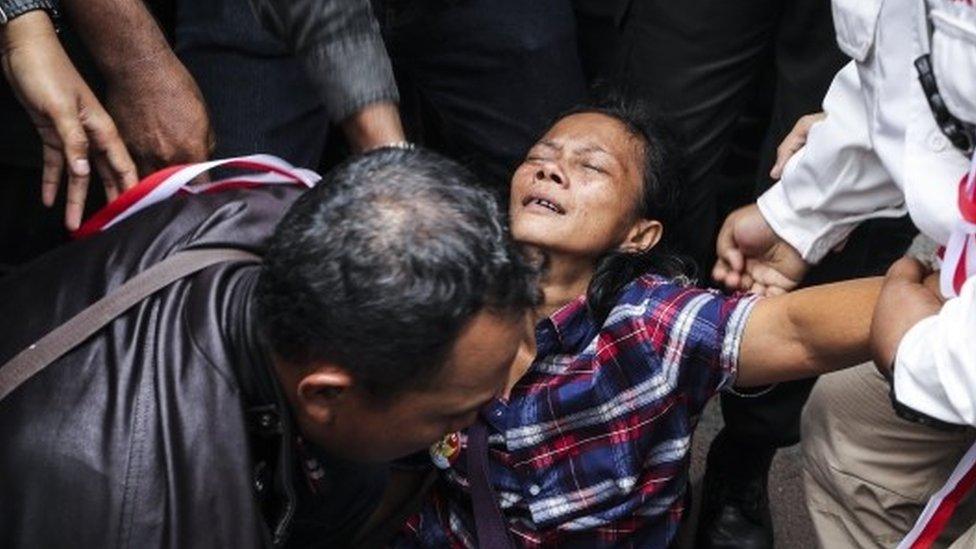
Some supporters of the governor were overcome with emotion upon hearing news of his conviction and sentence
But attacks on minorities have risen in recent years.
"This ruling is sending a clear message to the minorities that they can't play around with the majority or this is what will happen to you," says Bivitri Susanti, one of the founders of the Centre of Study for Law and Policy.
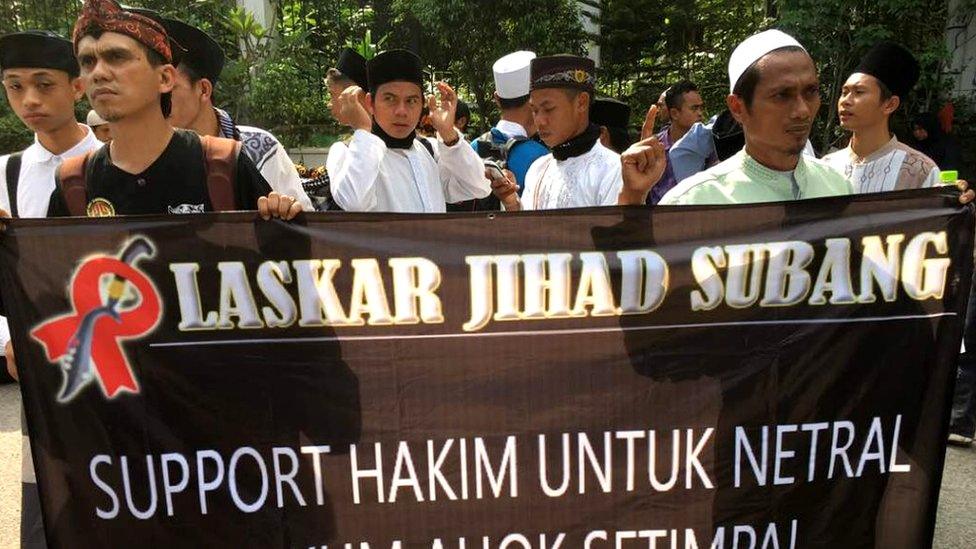
Many of those against the governor were not satisfied with his two-year prison sentence - arguing it was too lenient
"It's beyond Ahok. The impact of this decision is much larger - it confirms that people can use the blasphemy law for their own political purposes."
The verdict is a blow to President Joko Widodo, a close ally of Governor Purnama.
In the mass protests against the governor, the crowd warned that if he was not found guilty they would stage a revolution and overthrow the national government.
A day before the verdict, President Widodo's government fought back, announcing that they would move to disband the local branch of the Islamist group Hizb ut-Tahrir - which campaigns for the implementation of Islamic law and has taken part in the protests against Governor Purnama.
Hizb ut-Tahrir has been operating for decades in Indonesia and has a large following. It is banned in a number of countries.
And Chief Security Minister Wiranto said that the group's activities now "could threaten public security and order and endanger the unity of Indonesia".
In response the group accused the government of being anti-Islamic.
"We are a legal organisation for 25 years, we are a religious group that is offering a religious solution for the country," they said in a statement.
Despite the government's threats, the group was outside the court on Tuesday, their members part of the thousands there to see Governor Purnama face justice.
But they, too, were not happy with the verdict.
"We do not feel satisfied with the punishment of just two years in jail," said one man, Solihin.
"He should have got the maximum of five years or better still have been beheaded."
- Published9 May 2017
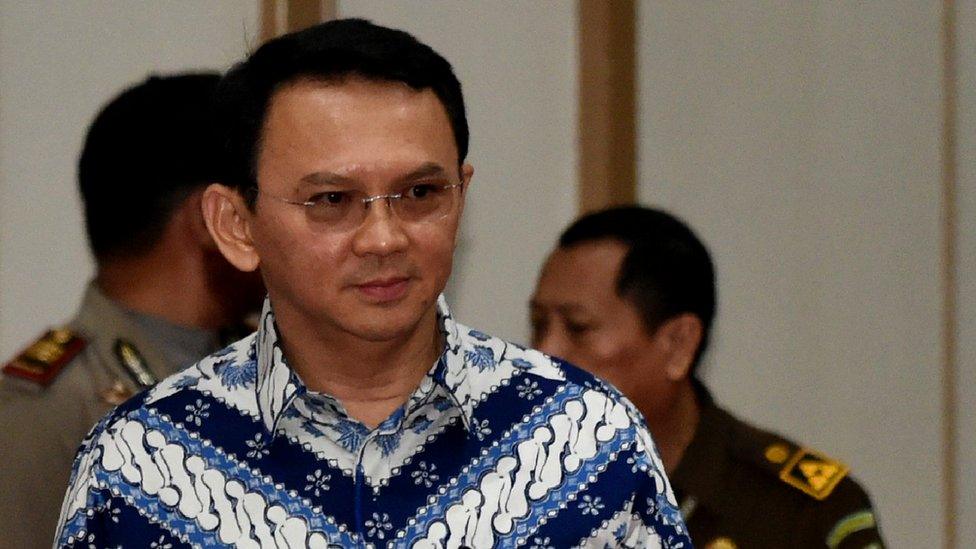
- Published9 May 2017
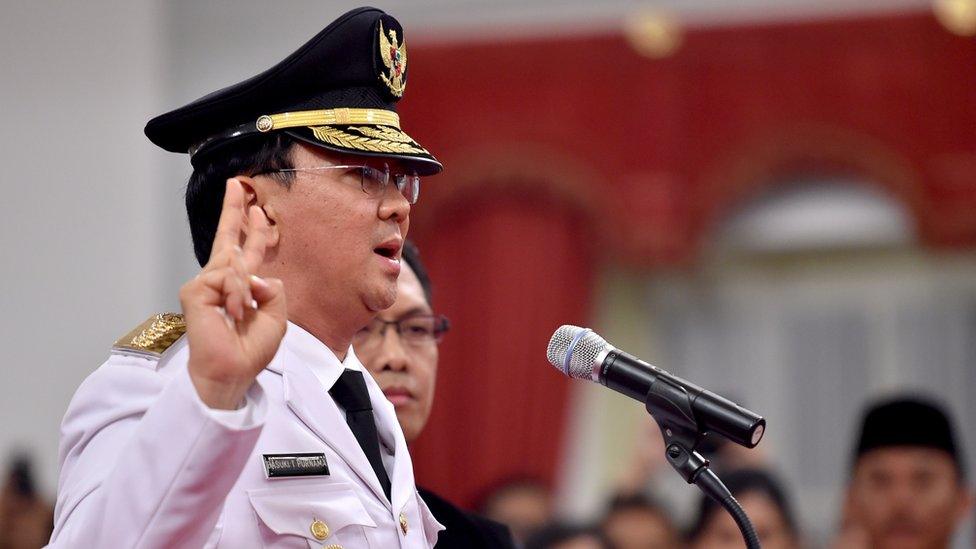
- Published14 February 2017
